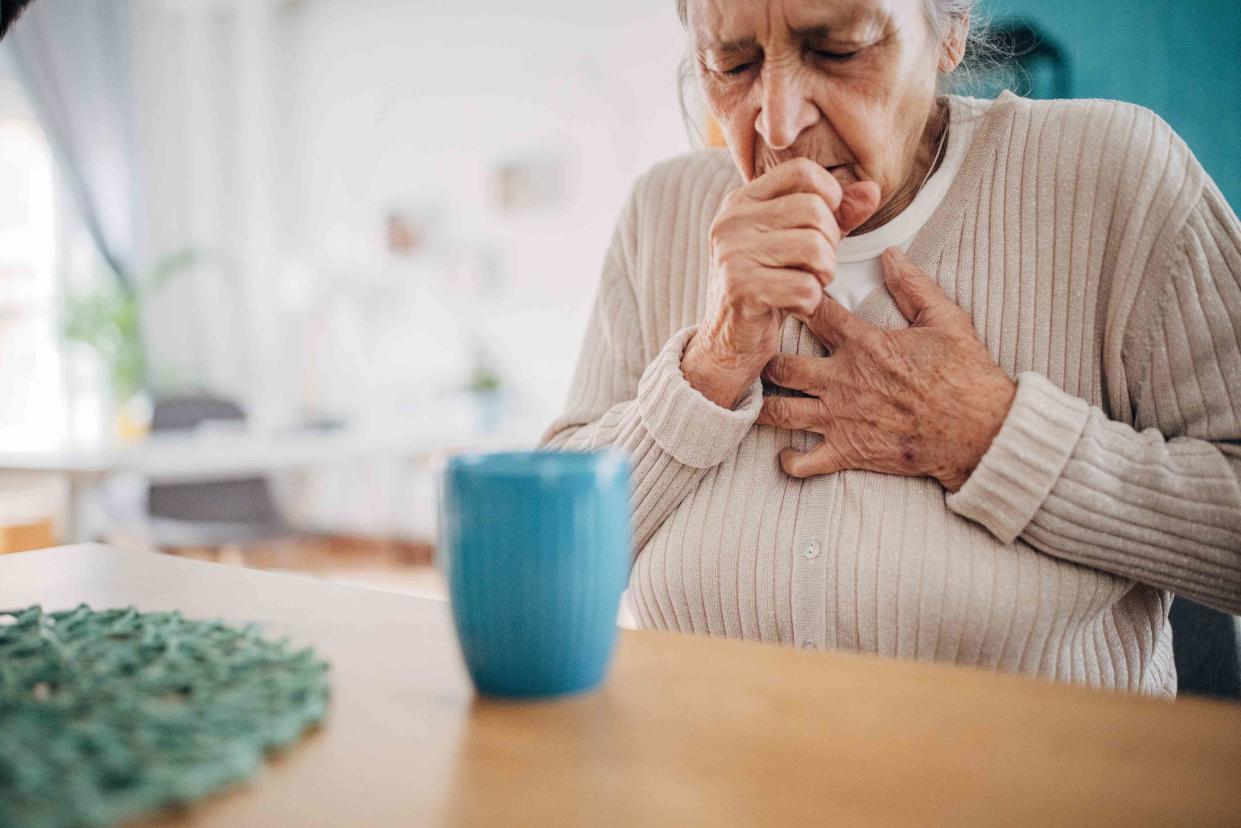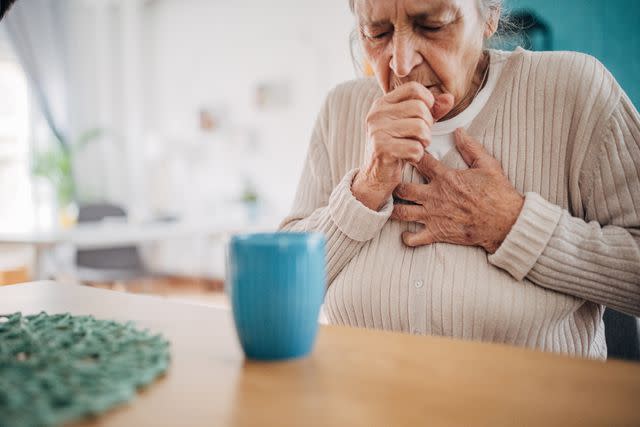3 Signs a Cough Is Getting Better

South_agency / Getty Images
Medically reviewed by Josephine Hessert, DO
A cough can be uncomfortable and disruptive, and if you've had it longer than a few days, you may be looking for signs that the cough is getting better. No standard test or screening tool can determine if a cough is improving. However, some physical signs only you can notice may indicate your symptoms are progressing in the right direction.
Learn how to tell if your cough is getting better, and what can be a sign that it's not.

South_agency / Getty Images
Signs a Cough Is Getting Better
A cough can last longer than you think and evolve before it improves. Coughs can have different features depending on the underlying cause and the phase of your illness. Below are three signs that a cough is getting better.
Tickle or Dry Cough Decreases
You might have a tickle in your throast causing a cough without mucus—also known as a dry or nonproductive cough. Sometimes, a dry cough is a sign that your cold is nearing its end. Other times a dry cough indicates chronic conditions like:
Irritation from smoke or pollution
Chronic irritation or inflammation
Scratchy or Sore Throat
A scratchy or sore throat is often a sign of a looming cold or throat irritation due to a chronic cough. See a healthcare provider if you have a sore throat that worsens as your cough improves. You could have two different infections simultaneously, causing similar symptoms. However, if your sore throat improves, it could be a sign that your cough will get better too.
Fever Breaks
You can develop a cough from allergies or irritation, but when accompanied by a fever, a cough is usually the result of an infection, like a cold or flu. When your fever breaks (goes away), it is typically a sign that your body is winning the fight against the infection.
What About a COVID-19 cough?
A cough is a common COVID-19 symptom that decreases over time, signaling the end of the illness. However, some people with COVID-19 experience ongoing or long-term symptoms. If you tested positive for COVID-19 and your cough does not improve after several weeks, talk to a healthcare provider about additional testing and treatment.
Does Coughing Get Worse Before Getting Better?
How your cough progresses depends on your cough's cause. If your cough is the result of a cold or another infection, you may develop other symptoms alongside your cough, such as:
Runny or stuffy nose
Fever
Sore throat
These symptoms gradually improve throughout an infection but can last several weeks.
Some coughs are caused by chronic conditions, including:
Allergies
Asthma
A cough from these conditions typically fades out or flares up, depending on your illness stage. You may experience a worse cough during periods with high pollen counts if you have allergies or during an asthma attack or COPD exacerbation. Your cough may worsen over time, but people with various chronic conditions, go through periods of fluctuating cough frequency or severity.
Learn More: The 3 Different Types of Cough: What They Mean
Time It Takes a Cough to Get Better
A cough can take several weeks to fade away. Coughs from minor illnesses like the common cold can last for two or three weeks without raising the alarm. A cough from a viral or complicated infection like pneumonia or bronchitis may last up to two months before getting better.
If a chronic condition like heart failure or COPD causes your cough, focus on controlling your underlying disease by doing the following:
Taking your medications as prescribed
Avoiding triggers
Having fluids removed from your body
Managing underlying conditions can help improve your cough over time.
What Helps a Cough Get Better?
Antibiotics can help treat a cough caused by a bacterial infection but will not treat a viral illness or chronic cough.
Most cough remedies do more to soothe a cough or irritation than cure a cough. Some treatments that may help ease your cough or the discomfort it causes include things like:
Cough drops
Tea or warm drinks
Honey
Humidified air
Gargle warm salt water
Sleep with your head elevated
Make sure you drink plenty of fluids
You can also try over-the-counter medicines to suppress your cough or clear up congestion. In severe or prolonged illness that causes a cough, you may need prescription medications like antibiotics or steroids to find relief.
Helping a Chronic Cough
Some remedies can help you feel better with a chronic cough, but the best treatment method is to address the underlying problem. If you have COPD, heart failure, or GERD, changes to your diet or medications can help to keep your condition in check.
Signs a Cough Is Getting Worse
It can be challenging to tell if your cough is improving since there is no objective test to assign a stage to most coughs. However, there are clear signs that you will notice if your cough is getting worse. Some indications that your cough is getting worse include the following:
More frequent cough
Cough lasting more than three weeks
The onset of additional symptoms, like fever
Any of the following issues along with your cough are a sign that you should seek immediate medical treatment:
Shortness of breath
Loss of consciousness
Lips or fingernails that turn blue
Unusual barking sounds or stridor
Summary
No test or scale can tell if your cough is improving. You can usually tell how a cough is progressing by how you feel. If your cough is not improving or is worsening, follow up with a healthcare provider for additional treatment. Signs a cough is getting worse are more evident than signs it is getting better, so watch for things like dark or bloody mucus, a cough that lasts longer than three weeks, or a cough that makes you short of breath.

